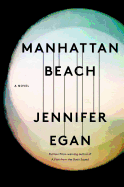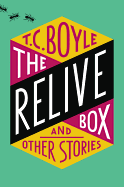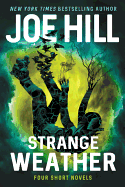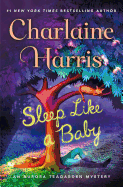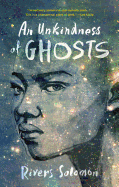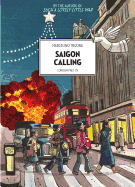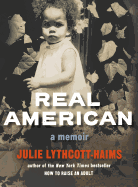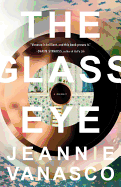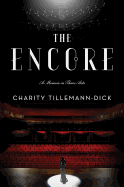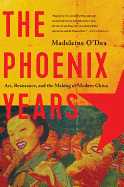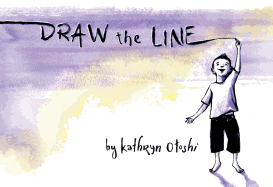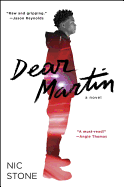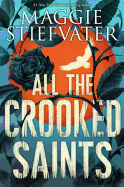 Rivers Solomon graduated from Stanford University with a degree in comparative studies in race and ethnicity and holds an MFA in fiction writing from the Michener Center for Writers. Originally from the United States, Soloman now lives in Cambridge, England, with their family. An Unkindness of Ghosts (reviewed below) is their debut novel.
Rivers Solomon graduated from Stanford University with a degree in comparative studies in race and ethnicity and holds an MFA in fiction writing from the Michener Center for Writers. Originally from the United States, Soloman now lives in Cambridge, England, with their family. An Unkindness of Ghosts (reviewed below) is their debut novel.
An Unkindness of Ghosts explores themes that include race, gender, mental illness, abuse and more. Why did you choose to go into outer space to address them?
Space heightened and emphasized many of the themes that were most important to me. I wanted to talk about the trauma of being a refugee, of being homelandless, of being part of a diaspora; the cosmos--a big black vacuum where pieces of matter, let alone real land, are light-years and light-years apart--allowed me to discuss how deep that trauma could be.
When you're abused, it feels like there's no escape. What better way to convey the sense of no escape than a vessel lost in space? It's life under a brutal regime or certain death. I thought a lot about slavery and the horrors people suffered, how fleeing North was not a possibility for those who lived on breeding plantations in the deep south. It was just too far. Only enslaved people in the most northern South had a chance, and escapees were truly few and far between.
I didn't want to feel like there was an easy out or some other place to aspire to go to. When you're chronically ill, when you are deeply depressed, when you're a child and the world is too big, it doesn't feel like there's ever going to be an after.
Space has this wondrous absoluteness to it that could show quite starkly the pain of being stuck.
Although the story is set far in the future, the citizens of the spaceship Matilda have divided into a ruling and a slave class along racial lines. Why do you think humanity insists on dividing itself?
I don't think dividing into hierarchy is a core tenet of humanity. Rather, European (and later U.S. American) empire has been so totalizing in its destruction of the world that it can be difficult for us to envision a life outside of it. Racism and colonialism have destroyed our imaginations, our visions of ourselves and what's possible. Powers in England, France, Spain, Portugal, et al. actively created a system that benefited them out of their individual, personal greed. The West plundered, and plundered, and still plunders--and it purposefully works to teach people from birth that this is the natural order of the world in order to maintain that system which gives them wealth.
The way it has gone isn't the way it had to be. I'll never be able to sleep at night if I believe humanity essentially has to have muzzles on it to stop subjugation and oppression. I prefer to think that history has etched the world with train tracks, and we're born on a speeding train riding along those tracks, but certainly, we can hop off.
I take so much heart in what Ursula K. Le Guin said in a speech she gave at the National Book Awards: "We live in capitalism, its power seems escapable--but then so did the divine right of kings."
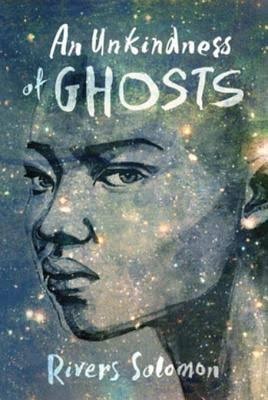 The Matilda is fascinating. Tell us about the process of developing its physical design.
The Matilda is fascinating. Tell us about the process of developing its physical design.
Matilda emerged in layers. I knew socially there was an underclass and a ruling class, and just like old steamships, it made sense to put steerage on the bottom and first class on the top. No sense reinventing the wheel and all that. The Field Decks were an early invention, and I spent a lot of time at different points sketching and imagining in order to figure out how they might logistically fit in. Sometimes, the story came out of the design of the ship, and at other times, the story necessitated a redesign of the ship. It would've been really easy to get lost in the physicality of it. Indeed, I did sometimes--sketching for hours, trying to render on paper what I could see in my mind. I can be quite a visual person, so to write certain scenes I had to know how it looked. The final version of Matilda didn't come until the very last draft. Funnily, no one on the ship really knows what it looks like in whole because they've never seen it from the outside.
You lived all over the United States before moving to the U.K. How has living in so many different places influenced your writing?
One of my favorite things about moving around a lot as a child--even on a small scale, such as moving from school to school--was how we form really tiny pockets of culture. How we move and talk is often informed by larger patterns of place and geography, but the use of certain turns of phrases, the way we style ourselves, whether or not your chili has pasta in it--in the Midwest it often does, but not so much other places, in my experience.
It showed me that there truly are infinite ways to live. It made me appreciate diversity. It made me appreciate sameness, too, the odd places where we converge. Almost everything I write has a strong sense of place. I love to write in those specific details that make a setting really breathe and feel alive, because it was often those little details I noticed.
Speaking of your influences, after finishing An Unkindness of Ghosts, readers will surely go looking for similar stories. What advice would you give them on what to read while they wait for your next story?
Who Fears Death by Nnedi Okorafor is speculative fiction that tackles trauma in a wonderfully rich world, and I'm really fond of it. There's Fire on the Mountain, which is an alt-history by Terry Bisson positing a world where the revolutionary abolitionist John Brown had been successful. Jamie Berrout's speculative short story collection Portland Diary is full of quiet beauty and paints a world peopled by disabled, trans and queer people. Berrout is a really intensely thoughtful person and that comes across in the best possible way in her exquisite prose. Meanwhile, Elsewhere: Science Fiction and Fantasy from Transgender Writers is an anthology worth checking out. For another brilliant short story collection full of magic and the speculative, What It Means When a Man Falls from the Sky is so very excellent.
Although the ending is open, An Unkindness of Ghosts feels complete. Will we see any of our friends from it in upcoming stories?
I'm really relieved that you describe the book as feeling open but complete, because that's my goal with any story--to gesture at other possibilities, to a life and time outside the book, but for there to be an exhalation that brings an amount of closure. To write An Unkindness of Ghosts, I had to flesh out a lot of what happened before the present and think about what would come, which led to me outlining a sequel (that also has prequel elements). I can't say if it will necessarily get written, but I really hope to share more from that world whether that be in print or other media. --Jacki Fulwood, blogger at Infinite Reads
Rivers Solomon: A Wider Array of Possible Futures
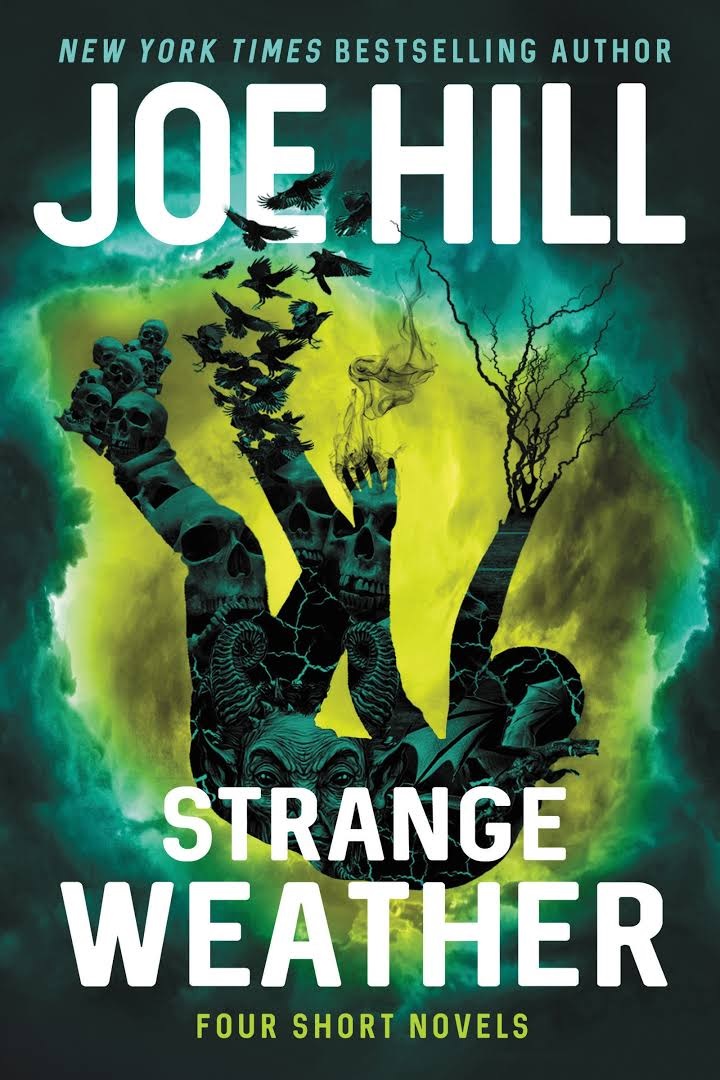 Joe Hill's most recent book, Strange Weather (reviewed below), is a reminder of the strengths of short novels and novellas. Strange Weather collects four of Hill's short novels--terminology is slippery, given that no one can agree on the precise length of novellas--and they ably demonstrate the singularly gripping capabilities of the form. Genre fiction has often benefited enormously from brevity--e.g., The Strange Case of Dr. Jekyll and Mr. Hyde, The Turn of the Screw, A Clockwork Orange. More recently, Tor has revived interest in novellas thanks to an outstanding string of releases including Binti, Forest of Memory and The Sorcerer of the Wildeeps. (Of course, genre fiction is not the sole beneficiary of succinct storytelling--with Denis Johnson's passing we lost one of the greatest writers of short novels and novellas.)
Joe Hill's most recent book, Strange Weather (reviewed below), is a reminder of the strengths of short novels and novellas. Strange Weather collects four of Hill's short novels--terminology is slippery, given that no one can agree on the precise length of novellas--and they ably demonstrate the singularly gripping capabilities of the form. Genre fiction has often benefited enormously from brevity--e.g., The Strange Case of Dr. Jekyll and Mr. Hyde, The Turn of the Screw, A Clockwork Orange. More recently, Tor has revived interest in novellas thanks to an outstanding string of releases including Binti, Forest of Memory and The Sorcerer of the Wildeeps. (Of course, genre fiction is not the sole beneficiary of succinct storytelling--with Denis Johnson's passing we lost one of the greatest writers of short novels and novellas.)



 The Matilda is fascinating. Tell us about the process of developing its physical design.
The Matilda is fascinating. Tell us about the process of developing its physical design. 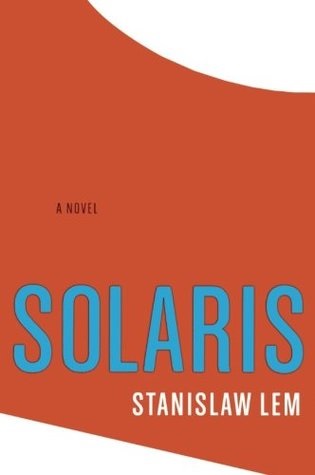 In Stanislaw Lem's Solaris, humankind has conquered the vast distances of the cosmos but has yet to master his own mercurial mind. The planet Solaris is covered by a single, seemingly sentient ocean and orbits a binary system of one red and one blue star. For more than a century, this titanic organism has baffled scientists--the obsessive specialists called Solarists--who pursue meaningful contact with this alien life form. Psychologist Kris Kelvin is the latest of such seekers to arrive on Solaris Station. But he finds the orbital habitat in chaos, with one scientist dead by suicide, another on the verge of lunacy and a third locked in his laboratory, conversing with someone who shouldn't exist. Solaris, it seems, has finally answered humanity's call--by reaching into the scientists' minds and resurrecting lost loved ones.
In Stanislaw Lem's Solaris, humankind has conquered the vast distances of the cosmos but has yet to master his own mercurial mind. The planet Solaris is covered by a single, seemingly sentient ocean and orbits a binary system of one red and one blue star. For more than a century, this titanic organism has baffled scientists--the obsessive specialists called Solarists--who pursue meaningful contact with this alien life form. Psychologist Kris Kelvin is the latest of such seekers to arrive on Solaris Station. But he finds the orbital habitat in chaos, with one scientist dead by suicide, another on the verge of lunacy and a third locked in his laboratory, conversing with someone who shouldn't exist. Solaris, it seems, has finally answered humanity's call--by reaching into the scientists' minds and resurrecting lost loved ones.